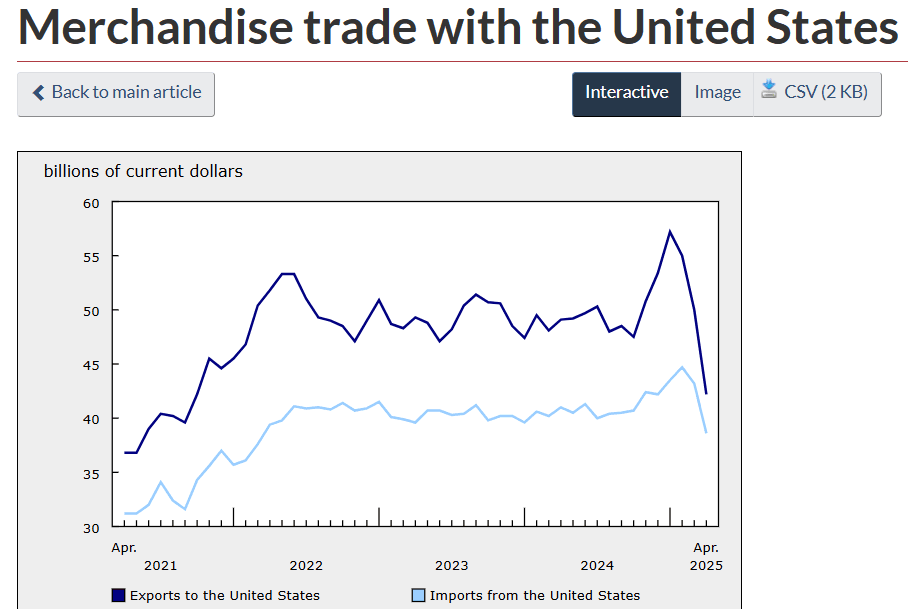MNI BRIEF: Record Canada Trade Deficit As U.S. Tariffs Hit
Canada had a record trade deficit in April as U.S. tariffs came into force and lower oil prices weakened energy shipments, a major sign of weakness the day after the central bank held interest rates and signaled a cut may be appropriate if the economy stumbles and inflation is under control.
The deficit grew to CAD7.14 billion from March's CAD2.26 billion, Statistics Canada said Thursday from Ottawa. Canada's bilateral trade surplus with the U.S. narrowed to CAD3.59 billion from CAD6.78 billion. As Donald Trump threatened tariffs, the bilateral trade surplus grew to a record CAD13.6 billion in January as customers stockpiled goods in anticipation of a trade war. (See: MNI INTERVIEW: Tariff Uncertainty Means Lower BOC Rates- Ragan)
Exports dropped 11% to CAD60.4 billion in April, the biggest percentage decline in five years. Motor vehicle and parts plunged 17%, reflecting the chill from Trump's desire to re-shore that production. "After tariffs on foreign motor vehicles were imposed by the United States at the beginning of the month, manufacturers in Canada reduced production in April, resulting in a sharp drop," StatsCan's report said.
Consumer goods exports fell 15% and energy by 7.9% on lower global oil prices. "This decline was primarily due to lower crude oil export prices, which fell in April amid lower demand driven by economic uncertainty, as well as a planned increase in production by members of OPEC+," the agency said.
